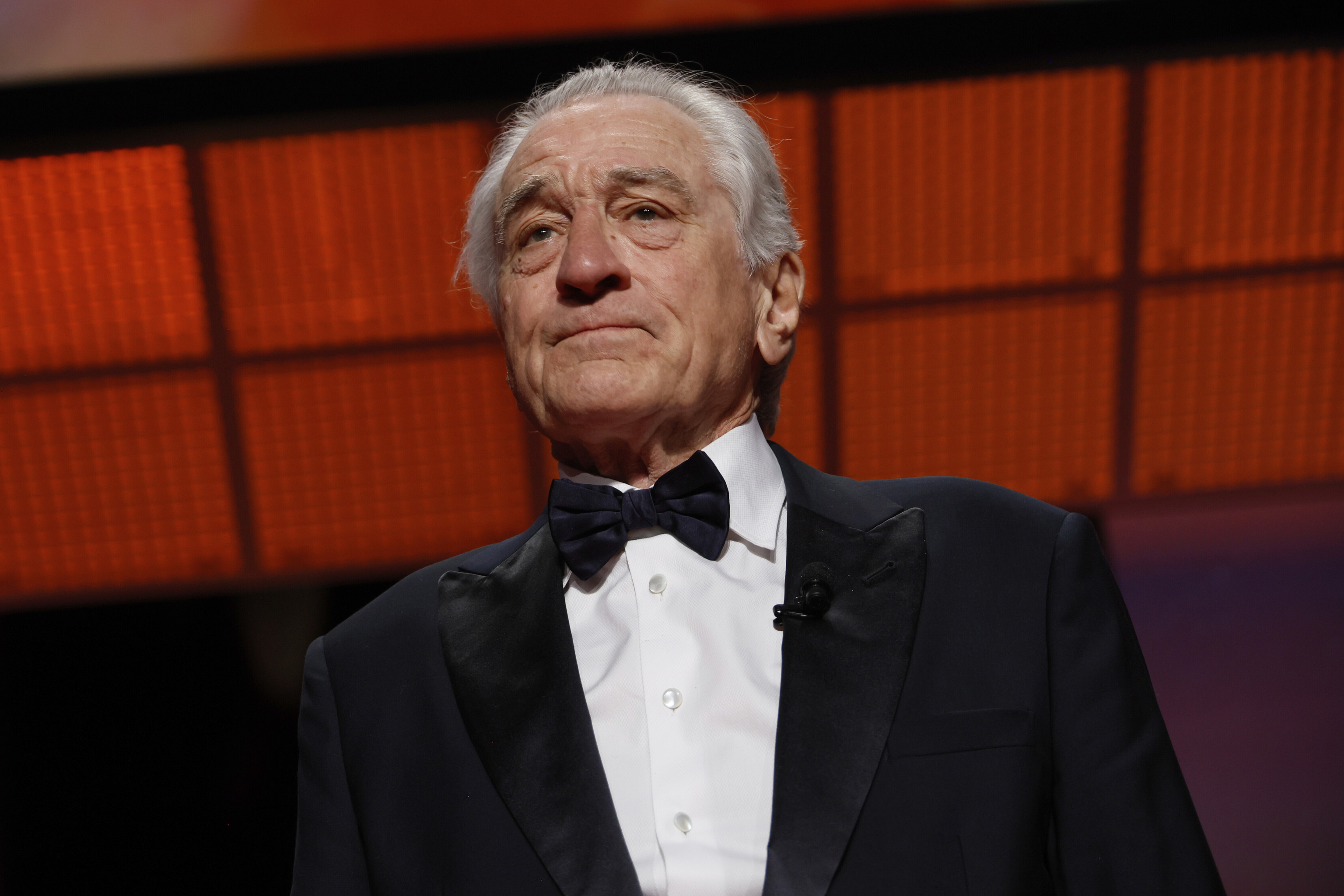Robert de Niro doesn't understand diplomacy. Or what he understands as diplomacy is something as straightforward as speaking his mind without any nuances, just pure clarity. It's probably the opposite of diplomacy. It's not the first time that the most revered actor of his generation and those surrounding him has clearly expressed his thoughts on the current U.S. President, but it is the first time he put it in writing. He was the recipient of this year's honorary Palme d'Or, presented at the opening ceremony of the 78th Cannes Film Festival on Tuesday, and his was the most fervently outspoken moment of a festival that has just begun and already includes a manifesto against the genocide in Gaza signed by Pedro Almodóvar, Susan Sarandon, Richard Gere, and over 380 figures from the film and world culture; a public condemnation by the jury president, Juliette Binoche, of the convicted abuser and colleague Gérard Depardieu, and a massive response against the announcement of supposed tariffs on non-U.S. films. In other words, Cannes is more involved in politics than ever before because perhaps politics has never been so intertwined with cinema in general and Cannes in particular.
As soon as he took the stage, the star of the best films by Scorsese, Coppola, and a flagbearer of the New Hollywood born in the 70s, said his piece. "In my country, we are currently fighting tooth and nail for the democracy that we once took for granted. This affects all of us here because the arts are democratic. Art is shared, for everyone, inclusive, it unites people. Art embraces diversity, and that's why it's a threat, and that's why those of us in this field are a threat to autocrats and fascists," he said, without any other provocation than simple and basic sanity.
And he continued in case anyone had missed his diplomatic rhetoric: "The philistine President of the United States has appointed himself as the director of one of our main cultural institutions and has cut funding and support for the arts, humanities, and education. And now he has announced a 100% tariff on films produced outside the United States. Think about this... You can't put a price on creativity, but apparently, you can impose a tariff on it."
When he reached this point, it was clear that there was no turning back. The Festival that is now beginning is either political or it isn't. The speaker, to put it in context, took the stage at the Grand Théâtre Lumière half a century after doing so with two contemporary classics: 1900 by Bernardo Bertolucci, and Taxi Driver by his admired friend and admirer Martin Scorsese, a film that would win the Palme d'Or. From then until now, De Niro has been a regular at the Croisette with films like The King of Comedy by Scorsese, which opened the festival in 1983; Sergio Leone's masterpiece, Once Upon a Time in America (1984), and The Mission (1986) by Roland Joffé, which also won the Palme d'Or. He was even the jury president the year The Tree of Life by Terrence Malick received the highest honor. The last time he was at Cannes was two years ago with The Moonlight Killers by, of course, Scorsese.
With the authority of being considered the most essential living actor, he continued to make it clear that his fears and struggles are not exclusively American but global. "This is not just a problem in my country, it's global," he said. "We can't stand idly by. We have to act, and we have to do it now, not with violence, but with passion and determination. It's time for all those who care about freedom to organize, protest, and, of course, vote in elections. Tonight and over the next 11 days, we will demonstrate our strength and commitment by celebrating art at this glorious festival. Liberty, equality, and fraternity." It's clear.
Leonardo DiCaprio then spoke, the one who presented him with his award, and finally, Juliette Binoche took the floor again to pay tribute to the artist and photojournalist from Gaza, Fatima Hassouna. She is the protagonist of the documentary Put your soul on your hand and walk and she died in an Israeli airstrike just 24 hours after the film was selected for the ACID section of the Festival. Perhaps, as De Niro is clear about, the time for traditional diplomacy is over. Things are clearer, the more De Niro.
